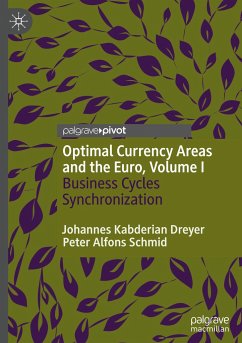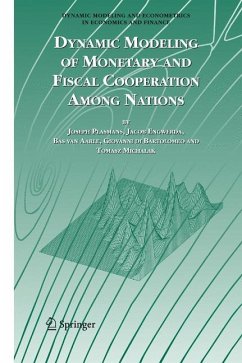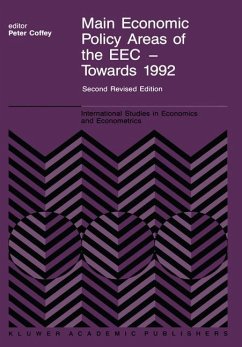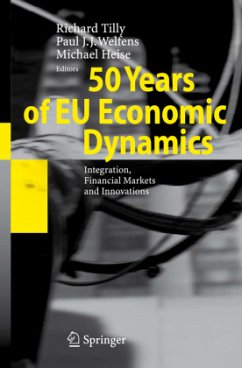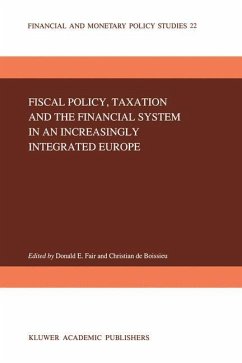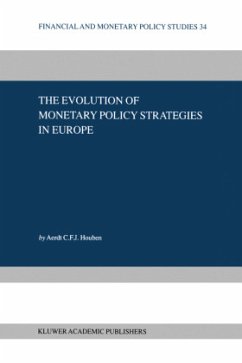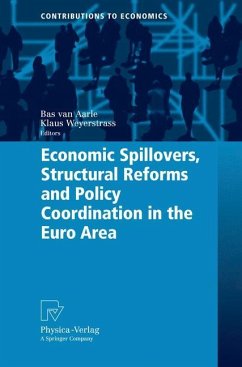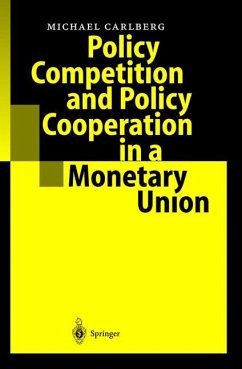
Optimal Currency Areas and the Euro, Volume II
Capital and Labor Mobility

PAYBACK Punkte
17 °P sammeln!
This book is the second of three volumes that uses the theory of Optimal Currency Areas (OCAs) and applied econometric techniques to provide the reader with a compact analysis of the Euro area, its evolution and future perspectives. Each volume of the series is dedicated to one of the three critical criteria for an OCA: 1) business cycle synchronization, 2) factor mobility and 3) the existence of a risk sharing system. This second volume deals with the criterion of factor mobility. The authors investigate and discuss whether there are signs of labor and capital mobility that have helped dampen...
This book is the second of three volumes that uses the theory of Optimal Currency Areas (OCAs) and applied econometric techniques to provide the reader with a compact analysis of the Euro area, its evolution and future perspectives. Each volume of the series is dedicated to one of the three critical criteria for an OCA: 1) business cycle synchronization, 2) factor mobility and 3) the existence of a risk sharing system. This second volume deals with the criterion of factor mobility. The authors investigate and discuss whether there are signs of labor and capital mobility that have helped dampen economic shocks among the regions of the Euro during its short history. The book is of interest to a wide range of researchers in financial economics, macroeconomics and economic policy.




